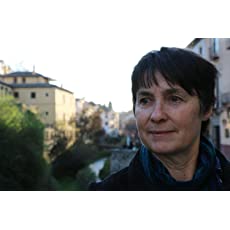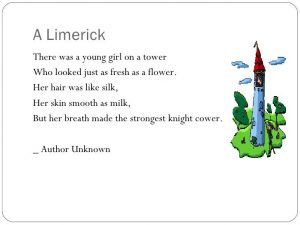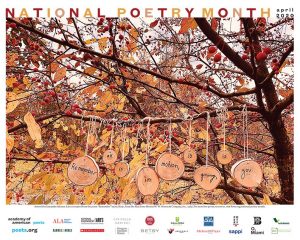 Source: TLC Book Tours
Source: TLC Book Tours
Paperback, 96 pgs.
I am an Amazon Affiliate
Why I Never Finished My Dissertation by Laura Foley, named one of seven Best Indie Poetry Books of 2019 by Kirkus, is probably her best work to date. In the opening poem, “What Stillness,” Foley sets the tone for the collection. We picture the narrator beside the pond, in stillness and quiet. But soon there is much more going on as her dog emerges from a swim and the light catches the wet droplets as they shake from the dog’s coat. Readers are privy to how stillness and light can shine the light on situations, changing how we perceive them if we take the time to look and listen. Foley’s collection speaks to this in poems about a marriage for a green card, understanding a father whose life irreparably changed when he became a POW, when confronted with a world where hate and bombast are praised, visits to a sister in a psychiatric ward, and much more.
Foley’s latest poem, “Hindsight,” tackles something different than her previous poem “Hindsight” in Joy Street, in which she examines a photograph of her father. Here, the narrator chooses to marry a Muslim man who needs a green card as a way to escape her white, privileged life. But there’s something much deeper to this escape. It is far easier for her to escape and attempt to run from her true feelings than to think about her truth — feelings for another girl. Hindsight is a powerful thing when time has passed and we can see a situation for what it was without all the other entanglements, rationalizations, and justifications for choosing a different path.
Foley’s use of hindsight in subtler ways demonstrate how we can easily hold onto regret and blame things around us for the choices we make, but these are choices we’ve made and they have made us who we currently are. This all circles back to the title of the collection and the poem, “Why I Never Finished My Dissertation,” in that the narrator’s overwhelming life of a young child, puppies, keeping house, and more lead her to decide against finishing that dissertation. It is a choice, and it could be a choice regretted, but her life’s journey leads to great things — pieces of her family and journey she’d never want to give up.
Twice the Speed of Sound She waves to me from the coach window, shadowed glass reflecting summer trees, her face dappled by a scree of boughs and leaves I can't see through -- maples not yet reddening into fall -- as she rides one plane after another, over no rough seas, into no threatened war, no lack of easy communication; still, the space expands like the universe: galaxies begetting galaxies, worlds yet unnamed-- despite phone calls bouncing from one far-flung tower to another, while out wide world keeps rolling under us at twice the speed of sound.
Foley reminds us that life is “chaotic with possibility” (“Discharge” pg. 40). Why I Never Finished My Dissertation is a meditative reflection of choice, life, living, and learning to look back with a kinder eye on those twists and turns. Don’t miss this collection. I cannot wait to see what Foley brings to us next.
RATING: Cinquain
Other Reviews:
 About the Poet:
About the Poet:
Laura Foley is the author of six poetry collections, including Joy Street, Syringa, and Night Ringing. Her poem “Gratitude List” won the Common Good Books poetry contest and was read by Garrison Keillor on The Writer’s Almanac. Her poem “Nine Ways of Looking at Light” won the Joe Gouveia Outermost Poetry Contest, judged by Marge Piercy. For more information on Laura’s work, please visit her website.















